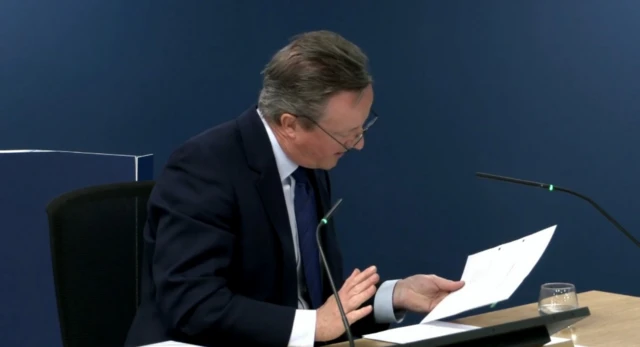UK needs to improve the way it looks at pandemics and resilience - Cameronpublished at 12:33 BST 19 June 2023
David Cameron tells the inquiry he thinks the UK needs to improve the way the country looks at pandemics and resilience.
Cameron finishes this first part of questioning by concluding: "The real problem was time spent quizzing the experts on what potential pandemics were coming and preparing for those in the right way and the questions which would follow from that."



